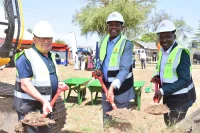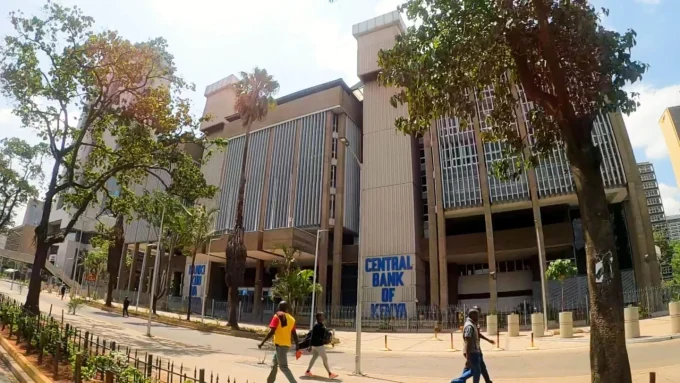Since attaining her independence in 1963, Kenya has undergone a constitutional crisis that has lasted over four decades. The rule of law has been sabotaged and undermined at every turn.
Kenya’s post-colonial history was an era of dictatorship and endemic corruption.
The colonial administration reflected orders from Britain rather than consensus obtained from the local community leaders.
This form of indirect rule kept governance at a distance, thereby centralizing power much to the convenience of a select few.
The British administrative system was adopted, along with copy-pasted laws, by Kenya’s post-independence regimes which emulated the autocratic tendencies of the colonial administrators.
This can be seen in the fact that Kenya’s post-colonial presidents maintained the same untouchability and unaccountability espoused in the colonial leadership.
When Kenya gained its independence, it only inherited and worsened the colonial crisis of governance with dire infringements on human rights and calamitous consequences on its economy.
The country has been polarized along ethnic lines while being deeply enmeshed in high-level corruption as the select few perpetuate impunity to accumulate wealth and power.
Kenya adopted a new Constitution in August 2010 with a view to building a new society and breaking away from the past.
The various provisions, combined, address the challenge of inequities in development, poor governance, and service delivery. The Constitution provides opportunities for better development and realization of the aspirations of the people.
The new constitution which was promulgated on 27 August 2010, sought to put an end to the 1963 independence constitution which for decades served the few rather than the many.
The new constitution was approved by an overwhelming 67% of Kenyan voters. However, the disagreements and impediments to its implementation continue to threaten what so many have died and suffered for. The factors undermining its application can be seen in the country’s post-independence history.
The new era, that is Kenya’s new constitution, was seen as a dagger to some and the beacon of hope to others, that would drag some Kenyans kicking and screaming and others dancing and singing into the new millennium.
Upon the promulgation of the Constitution, a crucial process was needed to audit and review all policies, laws, and institutions in all sectors with the key objectives of which were to audit the county government policies and legislation with the view of analyzing their compliance with the Constitution, to audit all the national policy and legislation with a view of ascertaining the extent to which they conform to the devolved system of governance and to identify gaps and challenges and make recommendations for harmonization and alignment.
Further, the unbundling and costing of the functions was to be done to ensure resources followed the functions and also remove all elements of duplications.
The constitution of Kenya was promulgated in a ceremony witnessed worldwide and truly gave the sense that Kenya had entered into a new era.
This celebration, however, was to be short-lived as the forces that had opposed the new constitution reared their ugly heads. The first dent on new Constitution happened during its promulgation day.
President Kibaki invited Suidan President Al Bashir who was an International Criminal Court (ICC) indictee and is currently being prosecuted. This was a big blot and signaled danger to the New Constitution.
The frustration that has become the thorn on every Kenyan’s flesh is the process of implementation of the new constitution. It has been sidestepped and demoralized the public at large.
The implementation of the Constitution is proceeding without a policy to guide implementation. Laws have been developed in many instances without a policy on which to anchor them.
Many of the laws required to facilitate effective implementation of the Constitution have also been enacted. However, many of them are too weak to further the letter and spirit of the Constitution. Laws are passed without a policy on which they should be anchored.
Institutional conflicts over the mandate, and general turf wars at different levels of government, have characterized implementation thus far. Dispute resolution has not been effective, again because of limited trust, suspicions, and mistrust between the two levels of government, as well as between the many players involved in implementation.
Both the National Assembly and the Senate have passed laws that tend to undermine the Constitution. The National Assembly has on several occasions passed laws that go against the text and spirit of the Constitution such as CDF, Security law, Finance law, media and communication law among others have been publicly cited as some of the laws that failed to meet the constitutional threshold and courts have declared them unconstitutional.
There is absence of sufficient and meaningful public participation in making key decisions at both the national and county government level. Both levels of government are not providing sufficient and meaningful opportunities for people to effectively participate in decision making.
The failure to effectively unbundle functions is creating confusion with regard to devolved functions and their resources. This confusion led to a court case on the division of health functions between the two levels of government.
The court emphasized the need for resolving issues regarding division of functions through mutual consultation and cooperation. This failure to restructure and align the old order of government especially ministries, departments and departments to accord with and respect devolution has caused huge economic and financial costs.
Conflicts have been a common feature of inter-governmental relations. There has been minimal dialogue on how to address the conflicts in their relations. This has undermined the principles of the cooperative government envisaged in the Constitution.
The Provincial Administration restructuring process is not yet complete. Despite sentiments that the administration is already restructured, the fact that the Ministry of Interior felt the need to develop a policy to guide the process is evidence that there are pending issues regarding the restructuring. Undoubtedly, the restructuring process touches on a number of stakeholders beyond the national government.
These include the county governments, independent offices, and institutions, the public who are consumers of national government services, the private sector, among other stakeholders.
There are certain practices of governance that negate the values and principles enshrined in the Constitution; they tend to claw back the gains made.
Corruption and lack of prudence in the use of public funds are on the increase. There is a lack of effective enforcement of the law to constrain behavior that threatens the erosion of the principles of the Constitution.
There are numerous factors that plague the implementation of the new constitution. Firstly it is important to address the deeply ingrained culture of authoritarianism in Kenya state that has been transmuted from Kenya’s colonial heritage.
Secondly, the law in Kenya has not been stripped of all technicalities and Parliament exercises its coercive powers to rule the general public.
MPs have been passing laws to their benefits including their remuneration and tweaking the Constituency Development Fund Act (CDF) to their liking while undermining other arms of the government like the Judiciary.
Thirdly, with the new constitution, Kenya has attempted to change its legal and institutional framework however a certain subversive culture is so embedded that it undermines the fundamental structure and functionality of the legal systems.
The culture of the state and public service impunity is so entrenched in the Kenyan psyche that it has grown into malignant cancer. It is a culture that is pervasive and ingrained in the Kenyan DNA structure and is almost impossible to get rid of except through generational change.
Fourth, the political discourse for decades in this country has been driven by vested political interests, non-reformists and tribalism giving rise to special appointments.
Though there has been a change in structure, the culture continues to be one that is reactionary and will denounce any attempts to create real and lasting change. This can be seen in politicians proposing amendment to the Constitution of Kenya to alter the elections date from August to December.
The mismanagement and disagreements around this issue is hindering the dispensation process. This proposal in itself underscores the continuation of impunity and the lack of consensus on the election date is threatening the fabric of Kenyan society.
Fifth, the exercise of arbitrary passing of laws (example through omnibus Miscellaneous Bills) and corruption is a worrying prospect that threatens the realization of the new dispensation of the Kenyan Constitution. Not only have members of Parliament been slow in passing Bills, but they are necessarily out of touch with the letter and spirit of the constitution.
Various Bills have stalled in Parliament after being drafted making it difficult to institute any real reform. The Parliament is filled with non-reformers in charge and they are therefore inherently incapable of instituting a reformist agenda that is the new Constitution of the Republic. The leadership is categorically not committed to the new order and look to implement legislation that is of a low standard in order to protect the status quo. Parliament watered down the leadership and integrity law for self-protection.
Sixth, the attempts at unnecessary amendments to the Constitution are severely hurting the implementation process. All amendments to the constitution must inherently enhance the constitution and not undermine its general spirit. The amendments and disagreements are the result of competing interests. An example of such an amendment would be the provisions relating to the gender representation requirement in article 81(b) which would ensure the full application of article 27 and the not more than two-thirds gender principle.
Seventh, the processes of constitution implementation are the timelines outlined within the constitution itself. This has resulted in a rushed law and institutional reforms process where bills being pushed through parliament have resulted in numerous errors and weaknesses creating disjointed, fragmented and subverted constitution implementation. This has made fundamentally weakened the true sanctity of the Constitution of Kenya 2010 as it is now.
Eighth, there has been the slow implementation of the security and judicial reforms. One of the many drawbacks affecting the implementation of the constitution at the time of promulgation was the lack of a judicial arm capable of mediating the disagreements that arose.
Prior to the Supreme Court being established it was difficult if not impossible for the judiciary to adjudicate any cases which warranted an interpretation of the new constitution at the time of promulgation.
Ninth, there is a lack of resources as the bodies entrusted with overseeing the application and dispensation of the constitution have been unable to institute certain provisions for example with respect to the taskforce for devolution.
There is a lack of synergy between the various elements and commissions in charge of implementing the constitution. The formation of the various commissions has not been enabled to function appropriately. The process has been politicized and lacks the authenticity needed to institute reforms.
Finally, The National Government through its agencies have exercised undue power leverage against the county governments. These include delayed and or cutting disbursement of funds, enacting laws, administrative policy actions, and financing proposing which counter the development of devolution.
There are a myriad of national laws and policies that are not in tandem with the Constitution which need to be repealed while others require amendments in order to ensure conformity with the Constitution.
This is well noted in devolved sectors such as health, agriculture, public finance, trade and industry, land, physical planning, urban development, natural resource management, water, and roads which are functions that substantive falls under the jurisdictions of the county governments.
There are serious notable ambiguities in legislation, the persistence of the old order in terms of laws, policies, and practices across all sectors, inadequate consultation, and cooperation between the two levels of government.
Further national government has been systematically been passing laws and policies that essentially attempt to recentralize devolved functions back to the National Government contrary to the Constitution.
Senate has taken Nationals Assembly to Court severally times for passing laws that undermine devolution.
It is possible for Kenya to move forward in this new era of dispensation of the constitution. Citizens of Kenya must exercise their constitutional rights and the right to self-determination to enforce a free and equal society as provide in the Constitution of Kenya 2010, a society where the rule of law is the standard to which all institutions and persons are held.
After Multiparty and promulgating the progressive Constitution of Kenya 2010, the next frontier of the struggle for the people of Kenya is delivering truly effective devolution of power and resources, economic freedom and human dignity, and tackling inequality.













Leave a comment